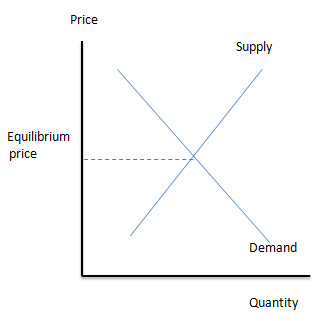I usually stack up postings and idea-draft postings ahead of time. I noticed that I have more than a few food related postings coming up. So if I only touch a few of the bases here, don't worry, there is more. If however, you are tired of food and just want to talk about skirmishing-weapons-fighting, you may have some problems, those posts take forever and I don't have any in the hopper at the moment.
Lester Brown has a new book out. In it he notes that we are “one poor harvest” from chaos and collapse. From The (U.K.) Independent:
Lester Brown has a new book out. In it he notes that we are “one poor harvest” from chaos and collapse. From The (U.K.) Independent:
In his new book "World on the Edge," released this week, Lester Brown says mankind has pushed civilization to the brink of collapse by bleeding aquifers dry and over plowing land to feed an ever-growing population, while overloading the atmosphere with carbon dioxide.
If we continue to sap Earth's natural resources, "civilizational collapse is no longer a matter of whether but when," Brown, the founder of Worldwatch and the Earth Policy Institute, which both seek to create a sustainable society, told AFP.
What distinguishes "World on the Edge" from his dozens of other books is "the sense of urgency," Brown told AFP. "Things could start unraveling at any time now and it's likely to start on the food front.
"We've got to get our act together quickly. We don't have generations or even decades - we're one poor harvest away from chaos," he said. "We have been talking for decades about saving the planet, but the question now is, can we save civilization?"
Lester Brown
Since I saw the blurb on the new release of his book, his concerns have become more immediate. From the (U.K.) Telegraph:[Prices] are higher than in 2008, when they drove the tally of the malnourished briefly above a billion for the first time in history, and caused riots in countries as far apart as Indonesia, Cameroon and Mexico. That ended nearly two decades during which the number of hungry people had stayed the same, while the world population grew by 1.2 billion, so that the proportion of an increasing humanity without enough to eat steadily fell.
But the crisis of two years ago, and the one that may be unfolding now, are polar opposites of the one behind the World Food Conference. Then, bad harvests had produced a real shortage. Now, we have bumper crops: the past three years have produced the biggest harvests ever. The issue is not one of supply, but of demand.
The mushrooming middle classes of India and China helped cause
the 2008 price hike by eating more meat, which, in turn, mops up grain: it can take, for example, 8lb of cereals to produce one of beef. And cars contributed as well as cows. Biofuels transferred over 100 million tons of cereals from plates to petrol tanks: to fill a 4 x 4 tank requires enough grain to feed a poor person for a year. Speculation, too, helped drive prices up.
the 2008 price hike by eating more meat, which, in turn, mops up grain: it can take, for example, 8lb of cereals to produce one of beef. And cars contributed as well as cows. Biofuels transferred over 100 million tons of cereals from plates to petrol tanks: to fill a 4 x 4 tank requires enough grain to feed a poor person for a year. Speculation, too, helped drive prices up.
There is a countervailing argument that states that the price increases are due to speculation fueled by easy money. I also agree in part with these arguments. However, the commodities would not be so vulnerable to speculation if global grain stocks were not already at decreased levels from the past (as noted in an earlier post related to nuclear winter). What is unfortunate, as you will see if you read the countervailing argument, is that the arguments are becoming politicized.
As a rebutal, Krugman (who is arguing with Yves Smith at nk) came up with the following:
As a rebutal, Krugman (who is arguing with Yves Smith at nk) came up with the following:
Many people on the “speculators did it” side like to point to financial data, especially large purchases of futures by various players. But food is a physical commodity, and plays in the financial markets can only move the price to the extent that they affect physical flows and stocks.
Here’s my exotic model of the market for a physical commodity:
OK, how can speculation affect this picture? The answer is, it has to work through accumulation of inventories — physical inventories. If high futures prices induce increased storage, this reduces the quantity available to consumers, and it can raise the price. And you can, in fact, argue that something like this has been happening for cotton and copper, where there are apparently large and growing inventories.
But for food, it’s just not happening: stocks are low and falling.
My experience in these debates is that the response consists of a blizzard of statistics about the size of forward positions, etc.. But remember, every purchase of a futures contract is also a sale — there’s someone on the other side. And neither the purchase nor the sale changes the physical quantity of the commodity available to the market.
So if and when I see signs that speculation is really driving up prices, I’ll say so. But the signature just isn’t there right now.

No comments:
Post a Comment